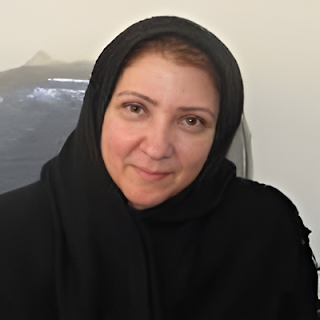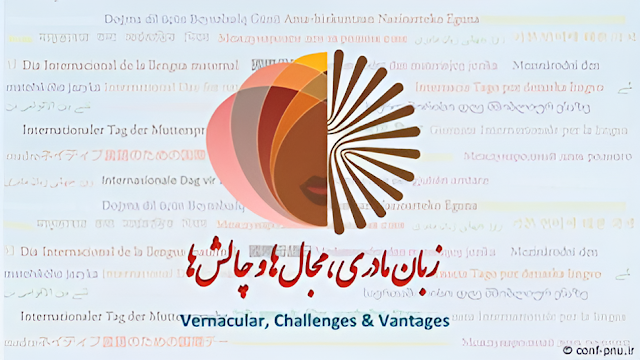By Taher Shir Mohammadi - Deutsche Welle Persian - February 21, 2013
On the occasion of International Mother Language Day, conferences are held in Iran to "achieve new scientific findings regarding the opportunities and challenges of mother tongues." But are these measures sufficient to mitigate existing problems?
Experts discuss the "challenge of mother tongues," the "First-of-Mehr (start of the school year) shock," and "educational underachievement in bilingual areas in Iran." But how have governmental institutions, including the Ministry of Education, sought to address these issues?
New Research on Mother Tongues in Iran
Emilia Nercissians, a professor at the University of Tehran specializing in education and anthropology, highlights the increase in university theses on mother tongues in Iran. In an interview with Deutsche Welle, she notes that research now has a more focused direction, going beyond merely studying bilingualism. It also delves into communicative and cognitive aspects, as well as the educational experiences of bilingual and multilingual students.
 |
| Emilia Nercissians, Associate Professor in the Faculty of Social Sciences, University of Tehran |
The First-of-Mehr Cultural Shock for Bilingual Students
But have these studies and efforts by linguists and researchers been practically implemented?Nercissians states:
“The Ministry of Education is aware of the issue. However, the problem remains that the ministry allocates the least budget to this matter. This budget is mostly spent on promoting literacy among Iranian citizens generally. Essentially, it propagates a single language—Persian—to enable communication among people, which is crucial in Iran, a multilingual and multicultural country.”
When asked about solutions for the challenges faced by bilingual and multilingual children, Nercissians explains:
“Our children in bilingual provinces suffer from academic underachievement. The Ministry of Education is aware of this and takes bilingual children to school a few months before the start of the school year (Mehr) to minimize the cultural shock of the first day of school. This alleviates the problem to some extent.”
Nercissians also points to some "desirable initiatives," stating:
“It would be great if bilingual teachers were appointed for bilingual children in schools. However, the budget of the Ministry of Education does not suffice for this. Instead, teachers are trained, particularly those assigned to multilingual provinces, to understand the needs of bilingual children and avoid treating them as monolingual students. This is the maximum effort the ministry has been able to make.”
Mother Language Conferences in Iran
Some higher education institutions in Iran attempted to mark International Mother Language Day (February 21) by organizing conferences. For the first time in Golestan Province, where most residents are Turkmen, a three-day conference titled Mother Language: Opportunities and Challenges was held.
The organizers stated their goal as "achieving new scientific findings regarding the opportunities and challenges of mother tongues and bilingualism." Topics covered in the conference included:
- "Mother Tongue: Conceptualization and Theorization"
- "Mother Tongue and Identity"
- "Mother Tongue and Education"
- "Understanding, Processing, and Learning Language in Bilinguals"
- "Mother Tongue and Personality Development"
- "Mother Tongue and Mass Media"
"Conferences Alone Are Not Enough to Solve Mother Tongue Issues"
According to Haji Murad Gonbadi, a Turkmen language researcher, scientific findings, research, or theses alone do not help preserve languages in Iran. He believes even holding mother language conferences will not significantly reduce the challenges faced by bilingual communities. Gonbadi asserts that the first step in resolving or mitigating mother tongue issues in Iran is acknowledging the country's linguistic diversity and implementing Article 15 of the Constitution regarding teaching mother tongues.
Speaking to Deutsche Welle from Gonbad-e Kavus, he explains:
“While organizing such conferences is commendable, institutions like Payame Noor University and local universities are not decision-makers in mother tongue education. We should not expect much from these events. Even ministries like Education or Culture have no independent will in policymaking on mother tongues. This is an issue that must be decided at a national level.”
Linguistic Diversity in Iran: Opportunity or Challenge?
Gonbadi also emphasizes:
“The mother tongue conference in Golestan could serve as a model for addressing the issue. However, the scientific merit of such conferences can only be assessed once the submitted papers are published.”
He argues that the multilingual nature of provinces can be highly beneficial to a nation, stating:
“The presence of various languages such as Kurdish, Turkish, Balochi, Arabic, Turkmen, and others in Iran is a significant asset. Unfortunately, officials in Iran often view the issue from a security perspective, which has widened the gap between the center and the periphery. Multilingualism is not a challenge but an opportunity. However, due to flawed policies, opportunities are turned into challenges.”
Limited Research on Mother Tongues
Gonbadi believes that little specialized research has been conducted on mother tongues in Iran. He elaborates:
“This topic was also discussed during Khatami's presidency in the Iranian Parliament and other institutions. Cultural representatives of ethnic groups participated in those discussions and proposed suggestions, but no progress was made. There is no political will to allow the teaching of mother tongues, even though it is explicitly stipulated in Article 15 of the Iranian Constitution. The weakness lies in the nature of Article 15—it is framed negatively, as a matter of obligation, rather than positively, as a proactive directive.”
He concludes that in bilingual provinces, schools should teach students’ mother tongues alongside Persian so that "national and ethnic languages grow in parallel."
Both Professor Emilia Nercissians and researcher Haji Murad Gonbadi stress that societal attitudes—especially among government officials and the country's elites—must positively shift regarding the issue of mother tongues in Iran. They also warn that failure to address this issue could lead to significant challenges for the nation.
The link to the original article in Farsi on Deutsche Welle Persian:
گسترش بحث و تبادل نظر برای حفظ زبانهای مادری در ایران

